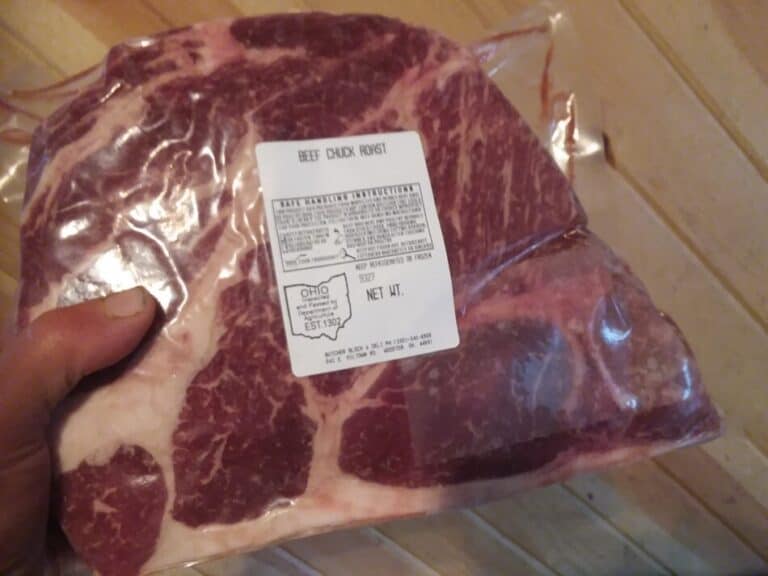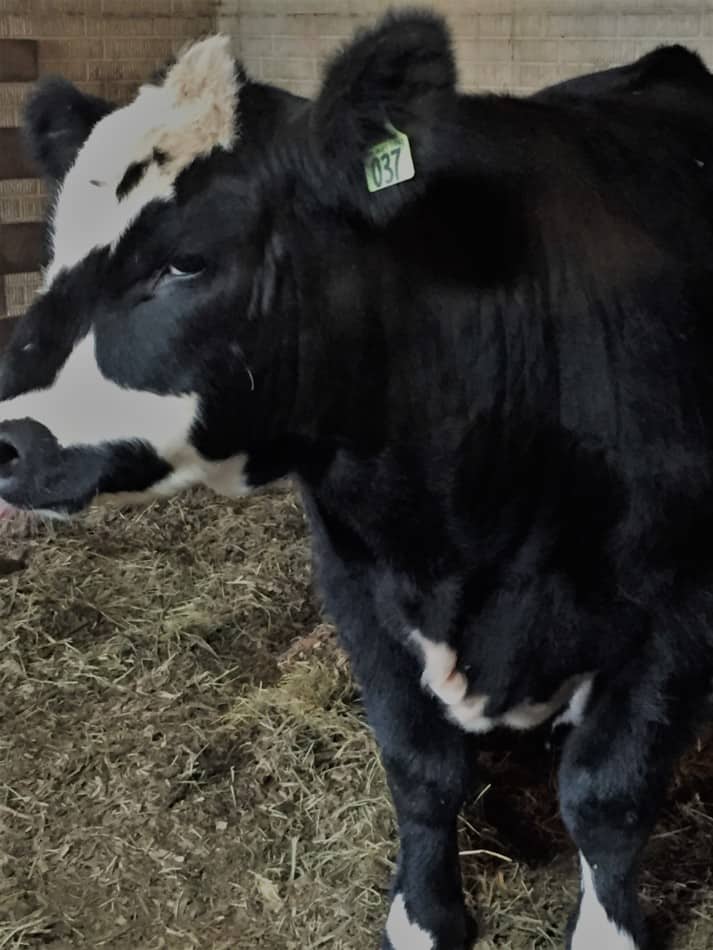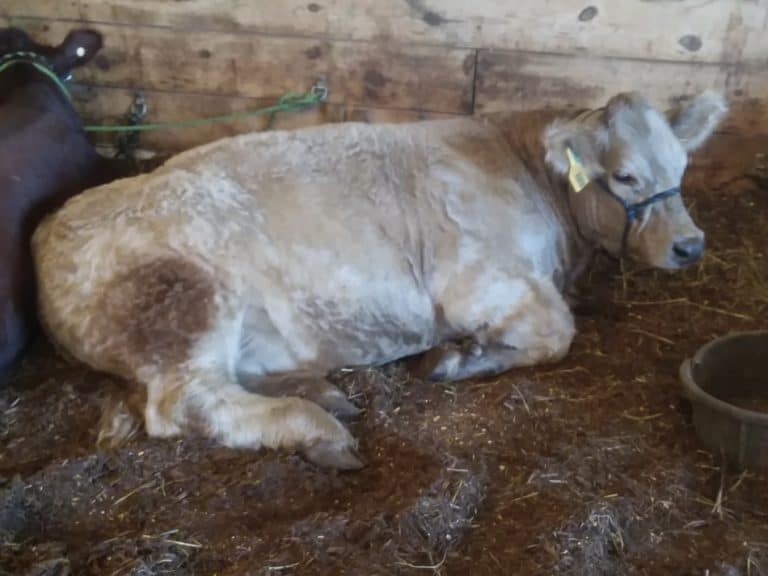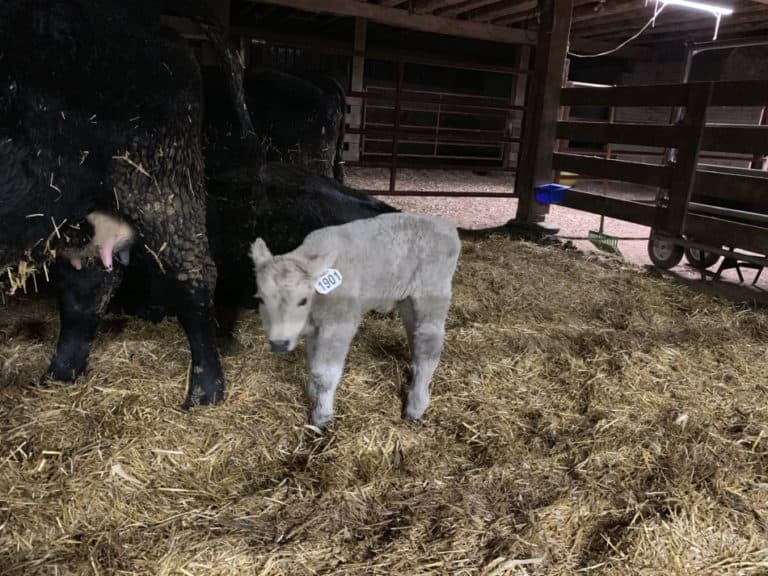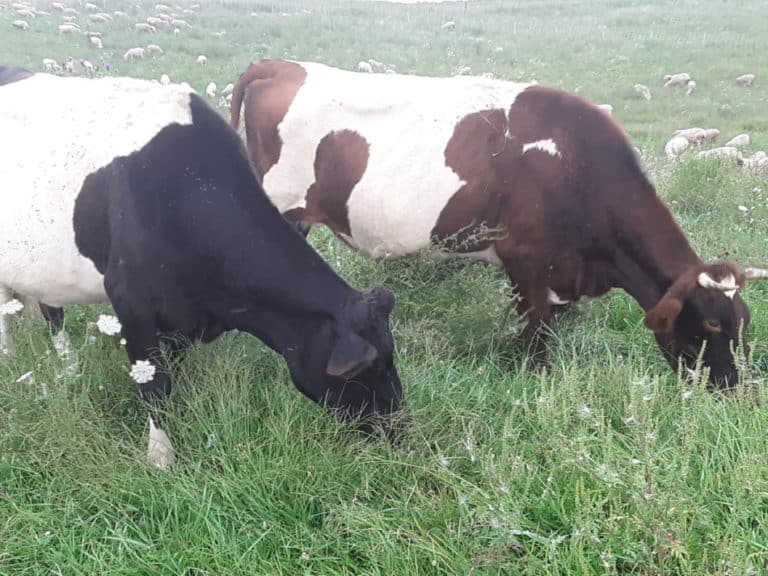Do Cows Have Horns? Answers To Common Questions About Horns
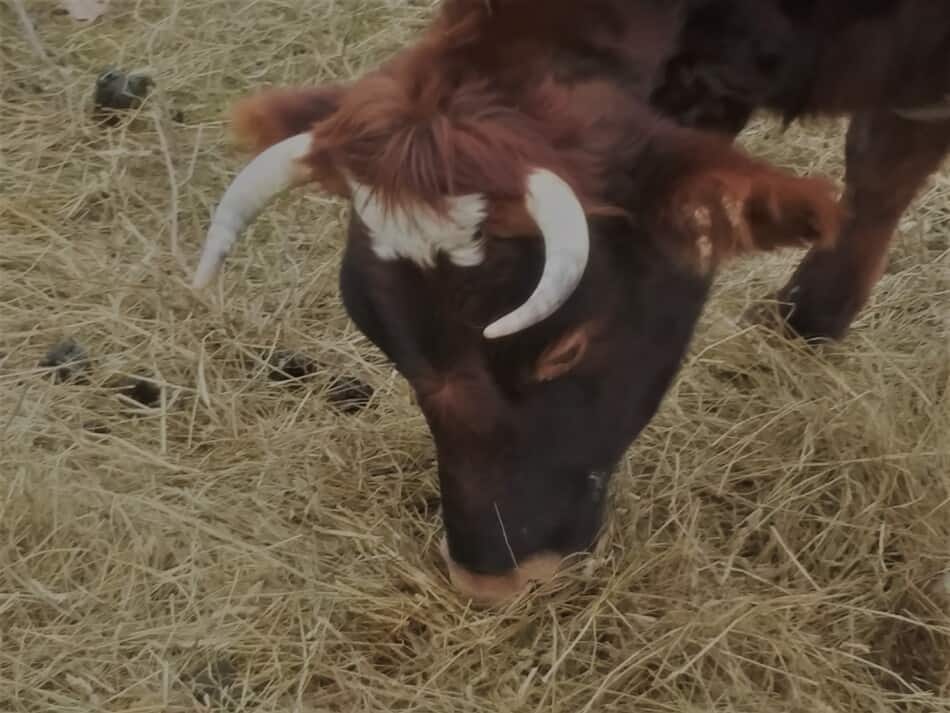
Ever wonder why some cows have horns and some do not? You can look out at a field of grazing cattle and not see a single set of horns in the group.
Yet in other settings, every animal out there, both male and female, will be sporting a good size pair of horns. Maybe even a crazy big set of horns! How can that be? What exactly makes cattle grow horns?
Both male and female cattle can grow horns, but not all cattle will grow horns. Whether or not a cow has horns depends upon her genetics.
Getting Started With Beef Cattle is an article I wrote to help you figure out where to start when you want to get going with raising your own beef.
There are many different breeds of cattle originating and developed with and for all areas of the world.
Different colors, coat patterns, body sizes and temperaments yet some are horned and some are not.
What is the reason why some cattle grow horns and others don’t?
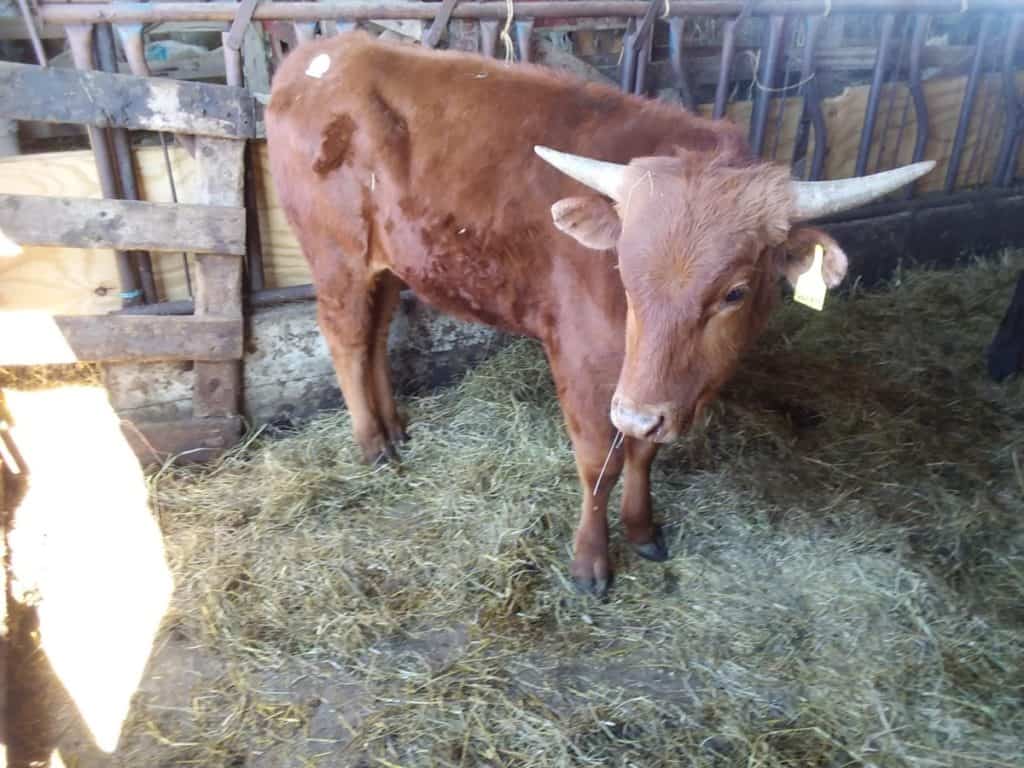
Cows inherit horn growing ability
The simple reason cows have horns is because she got the horned gene from both of her parents. Most purebred cattle in the world are born with the ability to naturally grow horns.
When a cow is in a situation where she has to take care of herself with little or no help from humans having a set of horns can easily mean the difference between surviving and death.
Even though cows are big they are still a target for predators.
She is an especially easy target when she has a new baby (the new baby is called a calf).
Her new calf is a bit slow and a little clumsy especially for the first day or so presenting a much easier target than an adult for a hungry predator.
A cow with horns is called a cow
Actually a cow is called a cow when she has a calf. Before she has a calf she is called a heifer.
Horns have nothing to do with the terms used to describe her. It is all about her age and if she has given birth.
Genetics determine horn shape
Shape and size of horns are determined by genetics. Just like you will look a lot like your relatives so will a cow and her horns.
Generally breeds that come from a warmer climate have longer horns.
Longer horns also seem to go with a slimmer body shape of the typical cows in that area. Examples of these thinner built cows with longer horns are the Ankole-Watusi from central Africa or the Texas Longhorn.
On the other hand cattle that are have a wider build and are overall more stocky tend to grow smaller horns.
Think most common beef breeds like the Horned Hereford and nearly all dairy breeds including Holstein and Jersey.
Horns start growing after birth
The small bump you can feel but not see because it is covered with hair is the horn bud. The horn bud is the place where the horn will grow from as the calf gets older.
Horns start growing right away so when the calf gets older she can take start to take care of protecting herself.
Not all bulls can grow horns
No not all bulls can or will grow horns. The sex of the animal has nothing to do with the ability to grow horns.
Bulls or cows growing horns (or not) is completely genetic.
Cattle have horns, not antlers!
Horns and antlers are terms that are commonly interchanged. Aside from the fact that they are both on the head of the animal in question, horns and antlers are really two very different things.
Horns are permanent and grow with age
Horns have a substantial blood supply and are directly connected to the sinus cavities of the cow. If not removed or broken, horns are a permanent part of the animal.
Horns have a bony core that contains a network of air spaces. These air spaces continue to expand from the skull towards the tip of the horn as the cow gets older.
The Demeter Association has an interesting pdf about Why Cows Have Horns, if you want to read a biodynamic approach to cattle and horns.
Antlers are completely regrown every year
Antlers are a bony growth that is regenerated every year.
The antlers are covered with a living skin called velvet when they first form. The animal then rubs off the velvet layer leaving the bony core we recognize as antlers.
Each year the antlers grow bigger and in most cases have more tips branching off the main part of the antler to give the antlers a more impressive look as the animal ages-think Whitetail Deer.
Cattle can be dehorned
Some people choose to have the horns removed from their cattle.
Common reasons for having horns removed are to be able to keep more animals in a smaller space and to prevent the more aggressive cows from injuring an meeker herd mate.
The easiest way to remove horns is with disbudding iron. This must be done when the calf and the horn buds are small.
It is possible to remove the horns on adult size cattle. As mentioned above horns are alive and have a blood supply, so this is a job for a vet.
Polled cattle can not grow horns
Polled cattle do not have the ability to grow horns. Polled is the term used to describe a cow that will not grow horns. She does not have the genes that will tell her body to grow horns.
Having cattle that are naturally polled is economically important to the farmer and is a big factor in bull selection. If you want polled calves the easiest way to get them is by using a polled bull.
Even if the cow has horns genetically using a genetically 100% polled bull (homozygous polled) will make all of the calves he sires polled because to grow horns a calf needs the horned gene from both parents.
A calf with horned genes from mom and homozygous polled genes from dad will always be polled. Even if the calf is genetically half polled half horned it will always look polled.
Want more information on interesting aspects of cattle, especially cattle behavior? Consider reading my article Why Do Cattle: Eat Dirt, Stampede, Bellow And More.
Related Questions
Can a cow have and udder and horns?
Cows can have an udder and horns. Having horns or not having horns if she has had a calf she will have an udder and be able to milk.
Will the horns grow back if after being removed?
Horns will not grow back. Once a cow has her horns removed, or if the horns are broken off, she will never grow horns again.
Can a cow with no horns have a calf that will grow horns?
Removing the horns from a cow does not change her genetics. Genes determine if a cow grows horns, not physical appearance.
